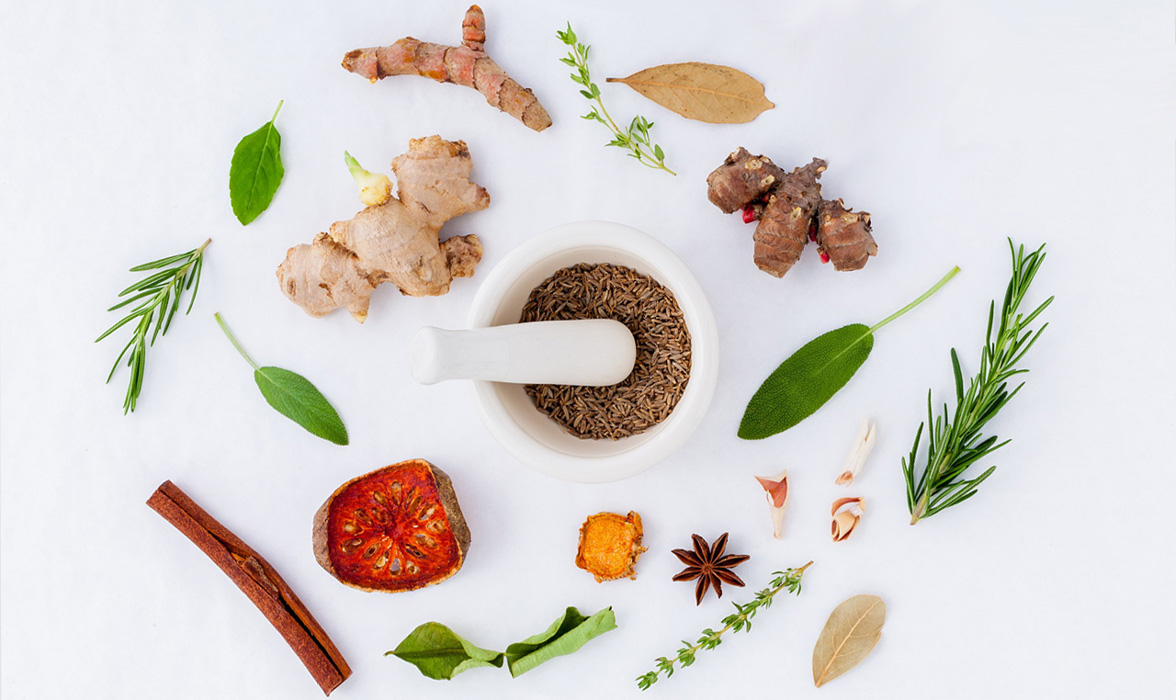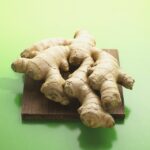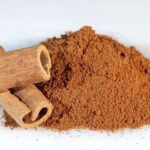Did you know that there are herbs to help lower cholesterol levels naturally? Particularly LDL, which is said to be the “bad” cholesterol. Well, there are!
5 Top Herbs to Help Lower Cholesterol Levels

But first, let’s talk briefly about cholesterol…
High cholesterol may seem like a minor health issue, but it can lead to major consequences if left untreated.
If you have high cholesterol and don’t realize it, or you choose to ignore it, your risk of heart disease and stroke increases significantly.
Fatty deposits can build up in your arteries, restricting blood flow and causing damage to vital organs.
It’s important to act fast and make lifestyle changes to lower cholesterol levels, such as eating a healthy diet and getting regular exercise.
After all, the only thing worse than a bad cholesterol reading is the regret of not taking it seriously.
What is cholesterol?
Cholesterol is a vital component of human cells that helps in the production of hormones, bile acids, and vitamin D.
But, high levels of cholesterol in the bloodstream can lead to the accumulation of fatty deposits in the arteries, increasing the risk of heart disease and stroke.
While there are many ways available to reduce high cholesterol, i.e. medications, natural remedies, herbs, diet, etc, each are designed to help lower LDL cholesterol levels in the body.
So, now we are set to explore some of the best herbs that can help you maintain healthy levels or lower cholesterol naturally — and improve overall health!
- Turmeric
- Fenugreek
- Garlic
- Ginger
- Cinnamon
Each of the five herbs presented below have either a “study” or “meta-analysis” to back the findings.
So, I thought it might be helpful to point out how they differ. Here’s the gist:
While both types of research can provide valuable insights, they differ in their approach and scope.
A study usually focuses on a particular topic and analyzes a set of data gathered for that specific study.
On the other hand, a meta-analysis involves compiling and consolidating data from multiple studies on a given topic, and analyzing it as a whole.
In other words, a meta-analysis is a study of the studies, while an individual study is focused on its own findings.
This means that a meta-analysis can give a broader and more comprehensive understanding of a topic, while an individual study can provide detailed insights into a specific aspect of it.
Make sense? Let’s dig in…
5 Herbs to Help Lower Cholesterol Levels Naturally
1. Turmeric:
 Turmeric contains a bioactive compound called curcumin, which has potent anti-inflammatory and antioxidant properties that may help prevent heart disease.
Turmeric contains a bioactive compound called curcumin, which has potent anti-inflammatory and antioxidant properties that may help prevent heart disease.
A study published in the Journal of Nutrition found that curcumin supplementation reduced LDL cholesterol levels by 33 percent in individuals with metabolic syndrome.
So, if you are looking for a natural way to support your cholesterol levels, look to turmeric.
This bright yellow spice has been used for centuries in Ayurvedic medicine and has recently gained attention for its potential health benefits.
Turmeric contains a compound called curcumin, which has been shown to help lower LDL (bad) cholesterol and triglycerides while increasing HDL (good) cholesterol.
Plus, turmeric is easy to incorporate into your diet. Sprinkle it on roasted vegetables, add it to a smoothie, or make a delicious turmeric latte. So, spice up your life and give turmeric a try for some cholesterol level support.
2. Fenugreek:
 Fenugreek lowers cholesterol is an herb that is often used in traditional medicine to treat various health conditions, including high cholesterol. It contains compounds called saponins, which have cholesterol-lowering effects.
Fenugreek lowers cholesterol is an herb that is often used in traditional medicine to treat various health conditions, including high cholesterol. It contains compounds called saponins, which have cholesterol-lowering effects.
A meta-analysis of 11 studies found that fenugreek supplementation could lower LDL cholesterol levels by an average of 14.8 mg/dL.
Okay, okay… Fenugreek might sound like the name of a character from a medieval fairy tale, but this herb has some very real benefits for your health.
Taking fenugreek supplements (or adding fenugreek seeds to your diet) may help your body manage its cholesterol levels.
Plus, they add a tasty nutty flavor to your meals.
Who knew that something so small could pack such a big punch? Give fenugreek a try and see if it can help you keep your cholesterol in check.
3. Garlic:
 Garlic has been used in traditional medicine for centuries to treat a variety of ailments, including high cholesterol. It contains compounds called alliums, which have been shown to have cholesterol-lowering effects.
Garlic has been used in traditional medicine for centuries to treat a variety of ailments, including high cholesterol. It contains compounds called alliums, which have been shown to have cholesterol-lowering effects.
A meta-analysis of 39 trials found that garlic supplementation could lower LDL cholesterol levels by an average of 10 percent.
Garlic, the smelliest herb in the garden, has long been considered beneficial for cardiovascular health.
But did you know that it’s also effective for managing cholesterol levels? Yep, that’s right!
Research has shown that consuming garlic on a regular basis can significantly reduce total cholesterol, LDL (bad) cholesterol, and triglyceride levels. That key compound found in garlic called allicin, which has been found to inhibit the synthesis and absorption of cholesterol in the liver.
So if you’re looking to give your heart some added protection, consider incorporating garlic into your diet – just maybe have some gum or mints on hand for the sake of everyone else! (Kidding.)
4. Ginger:
 Ginger is another herb that has antioxidant and anti-inflammatory properties that may help lower LDL cholesterol levels.
Ginger is another herb that has antioxidant and anti-inflammatory properties that may help lower LDL cholesterol levels.
A study published in the International Journal of Preventive Medicine found that ginger supplementation reduced LDL cholesterol levels by 10.3 mg/dL in individuals with type 2 diabetes.
I know, I know! Did you know that ginger can do more than just add a spicy zing to your meals?
This root spice has been used for centuries for its medicinal properties, including its potential to support healthy cholesterol levels.
Why not next time you’re preparing a meal, consider adding a dash of ginger to your recipe, whether it’s grating it over some roasted vegetables or mixing it into a savory sauce. Not only will you be adding a burst of flavor, but you’ll also be taking a step towards better health.
5. Cinnamon:
 Cinnamon to lower cholesterol levels naturally is a spice that is commonly used in desserts and baked goods. It contains compounds called cinnamaldehyde and cinnamic acid, which have been shown to have anti-inflammatory and antioxidant properties.
Cinnamon to lower cholesterol levels naturally is a spice that is commonly used in desserts and baked goods. It contains compounds called cinnamaldehyde and cinnamic acid, which have been shown to have anti-inflammatory and antioxidant properties.
A study published in the Journal of Medicinal Food found that cinnamon supplementation could lower LDL cholesterol levels by an average of 7.5 percent.
Add a little bit of spice to your health routine! Not only does it add a warm, comforting flavor to your morning oatmeal, but it may also be helpful in supporting healthy cholesterol levels.
While more research is needed to fully understand cinnamon’s effects on cholesterol, as mentioned above, early studies have shown promising results.
Cinnamon contains compounds that may help to lower LDL cholesterol, also known as “bad” cholesterol, while also boosting levels of HDL cholesterol, or “good” cholesterol.
A few other herbs to lower cholesterol levels naturally
Thought I should mention three other herbs that can help lower cholesterol levels naturally. The more the merrier, right?
- holy basil
- rosemary
- artichoke leaf extract
These three herbs are known for their antioxidant properties and can help to reduce inflammation in the body.
1. Holy basil, also known as tulsi, has been used in Ayurvedic medicine for centuries and is believed to help regulate cholesterol levels.
2. Rosemary has been found to lower LDL or “bad” cholesterol levels while artichoke leaf extract has been shown to increase HDL or “good” cholesterol levels.
3. Artichoke leaf extract, is the newest contender in the fight for healthier arteries. This extract has been shown to aid in reducing total cholesterol levels and increasing the amount of good cholesterol in the body.
The active compound in artichoke leaf extract, cynarin, is a natural cholesterol-lowering agent that also stimulates the production of bile acids, aiding in digestion.
So why not spice up your diet with these culinary herbs and reap the cholesterol-lowering benefits?
What causes high cholesterol?
High cholesterol is a sneaky little foe. It can creep up on you, quietly wreaking havoc on your body for years before you even realize it’s there. But what causes cholesterol to rise to dangerous levels?
In short, it’s a combination of both genetic and lifestyle factors. While some individuals may be predisposed to high cholesterol due to their family history, others may be unknowingly contributing to the problem through their lifestyle choices.
Diets high in saturated fats, lack of physical activity, and smoking are just a few of the culprits that can send cholesterol levels soaring.
So, while you can’t change your DNA, you can certainly make choices to help keep your cholesterol in check.
Perspective:
While herbs may not be a sole solution to treating high cholesterol levels, incorporating them into your daily diet may provide potential health benefits.
With their anti-inflammatory, antioxidant, and cholesterol-lowering properties, herbs like garlic, ginger, and cinnamon can all contribute to a healthier digestive and cardiovascular system.
By adding more herbs to your meals, you can help reduce LDL cholesterol levels naturally and improve your overall health and well-being.
Precaution:
Before incorporating any herbs or supplements, it is essential to consult with your doctor. That’s especially the case if you are taking any medications or have underlying health conditions.
